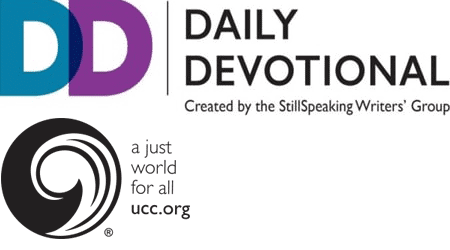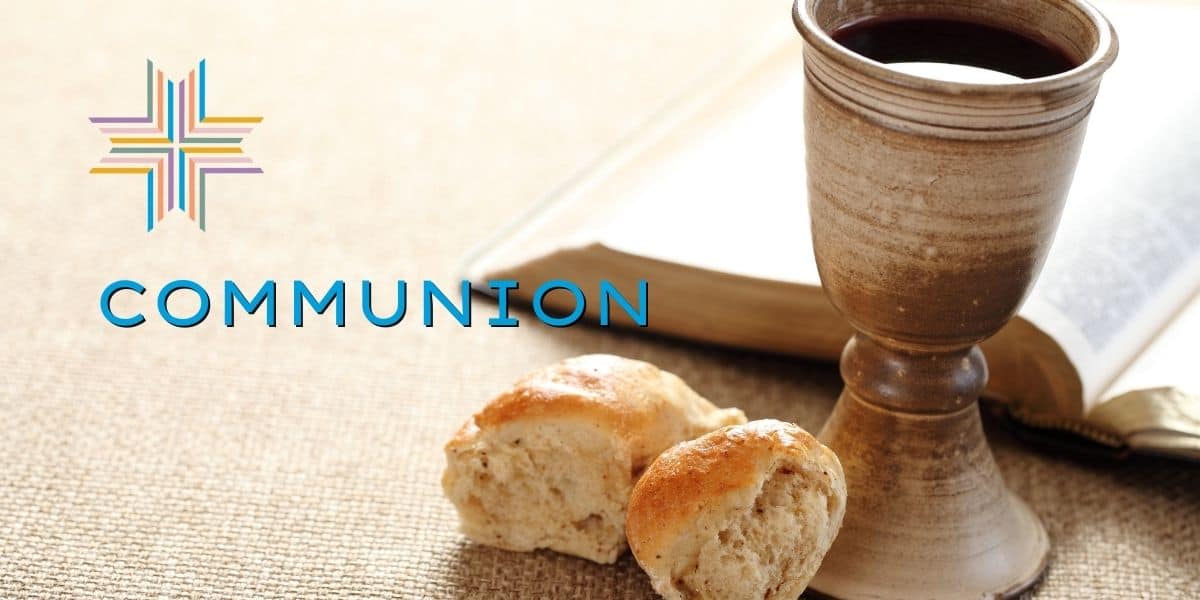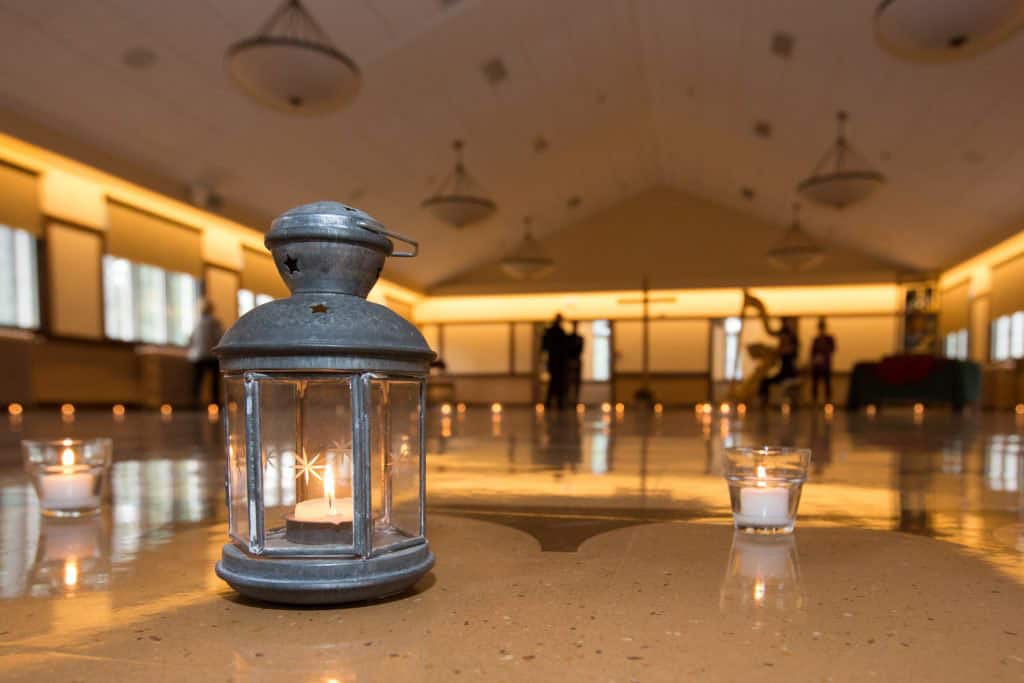
Happiness in life flows from and is dependent upon the spiritual condition of the heart. Nurturing a vibrant spiritual life comes through practices such as prayer, reflection on Scripture, spiritual direction, and worship, to name a few. All of this occurs within the context of God’s enabling grace. We offer a variety of such practices for you to nurture your spirit.


A MONTH OF PRAYER
Explore a curated collection of brief prayers and meditations designed to nourish your soul, inspire, uplift, and guide you on your spiritual journey. Tailor your journey by selecting the prayer and day that resonate with your needs.
The UCC Daily Devotional
The Daily Devotional is a spiritually deep well to which thousands of readers are drawn each day. The overall voice of the Daily Devotional is tended by the Stillspeaking Writers’ Group and supported by the staff of The Pilgrim Press.
To learn more and subscribe this wonderful resource, click below.


THE DAILY EXAMEN
The Daily Examen is a technique of prayerful reflection on the events of the day in order to detect God’s presence and discern God’s direction for us. The Examen is an ancient practice in the Church that can help us see God’s hand at work in our whole experience.
The Importance of Inclusive Language
Rachel Callahan gives a talk on why inclusive language matters. Inclusive language is a communication style that incorporates phrases and expressions that are inherently welcoming. By design, this communication style avoids assumptions that might exclude certain groups of people, even if the exclusion is unintended. Commit to diversity and inclusion in all communications, strive to use inclusive language.


PRAYER SHAWL MINISTRY
This ministry is responsible for delivering prayer shawls, lap robes, or in the case of a child, a fleece blanket, to members of the congregation in need as specified by one of our ministers or Faith Community Nurse. Other members of the congregation make these items, which are delivered in a gift bag with a handwritten note and a prayer for healing to their recipient. If you are interested in knitting shawls or making fleece blankets, please contact Rev. Meredith Onion at Meredith@wscongo.org or our Faith Community Nurse Jean Larson at jean@wscongo.org.
PRAYER REQUESTS
Never underestimate the power of prayer. God is listening.
As a family of faith, it is important that we support one another in any way we can. One way, of course, is praying for each other in times of need. We have in place a 16-member prayer team that will pray daily (and confidentially) for your specific needs. To submit a prayer request, please email our Faith Community Nurse, Jean Larson at jean@wscongo.org.

DEALING WITH GRIEF
Grief touches every life, often in unexpected ways. At First Congo, we believe no one should navigate loss alone. Whether through quiet companionship, prayerful support, or shared stories, the church offers a space for healing, hope, and comfort. Here is a resource for those experiencing life without a loved one—a reminder that you are not alone, and that care and connection are always available.


CAREGIVER SUPPORT GROUP
The Caregiver Support Group allows caregivers to talk to others who are experiencing the same joys and challenges, who not only can empathize, but also offer valuable insights and counsel.
Contact Faith Community Nurse Jean Larson at jean@wscongo.org with any questions.
CALLED TO CARE
Called to Care is comprised of volunteers who offer compassion, time, support and prayer to other members who may no longer be able to attend church or are experiencing an illness. These visiting lay care companions do not replace visits from First Congregational Church clergy or our Faith Community Nurse, but complement the visits made by the pastoral care team. Volunteers hold these relationships and conversations in confidence. Faith Community Nurse Jean Larson and Rev. Meredith Onion are the staff liaisons. Barry Orr-Depner is the lay leader. Please contact any of these liaisons if you would like to learn more, volunteer or be matched with a companion.


The Stiffler Labyrinth
EXPERIENCE LABYRINTH WALKS
Our Stiffler Labyrinth (dedicated in September 2015) is 36 feet in diameter and is an 11-circuit unicursal pattern following the design found on the floor of the Chartres Cathedral in France, which dates to 1201–1207.
A spiritual tool dating back to ancient times, a labyrinth offers a pathway of prayer and a walking meditation. When walking the labyrinth, be open to whatever may happen since your expectation may get in the way of your experience. Each walk is different— just as each person’s walk differs from those of others.
Please note: The labyrinth is available for private walks by appointment only. Please contact Bob Kos at bobkos@hotmail.com to schedule a time for your household to walk.
CONGO COOKS MEAL MINISTRY
The Congo Cooks Meal Ministry helps us to care for one another by providing meals to members in need of help due to a hospitalization, injury, new baby, or other life challenge. Volunteers sign up on an as-needed basis to make and deliver a meal. To be added to this meal team of volunteers, please contact our Faith Community Nurse Jean Larson at Jean@wscongo.org.
An extension of the Meal Ministry is the Congo Cooks Soup Ministry which allows for us to have packaged homemade soup and bread frozen and available for our pastors and nurse to deliver when making pastoral visits.


RECORDED COMMUNION SERVICE
The sacrament of communion is a powerful and important ritual in the practice of our faith. We recognize that many of you worship with us from home or from out of town. We hope this video communion service is an opportunity for you to bring your own bread and juice, and your open heart, to Christ’s table wherever you are — for there Christ will be also. Click below to view it.
“CONVERSATIONS” PODCAST
Subscribe to our weekly podcast to hear sermons from our pastors, daily prayers, stories and reflections from our members on a variety of topics.

Spiritual Practices
Daily Scripture Readings
Daily reading of scripture is a profound and meaningful spiritual practice. To follow the three-year cycle of the lectionary, find the daily readings by clicking the button below.
Bodily Prayers
We often think that prayer should be offered in stillness. But incorporating our bodies in prayer can be a deep, experiential way to pray.
Walking Prayer
Take a walk through nature or your neighborhood and spend this time in prayer. Meditating on or carrying a particular scripture passage may also help. Here are some suggestions:
“Make me know Your ways, O LORD; Teach me Your paths. Lead me in Your truth and teach me, For You are the God of my salvation; For You I wait all the day.” Psalms 25:4-5 (NASB)
“This is the day that the Lord has made; let us rejoice and be glad in it.” Psalm 118: 24
“O give thanks to the Lord, for he is good, for his steadfast love endures forever.” Psalm 118: 29
“Surely it is God who saves me. I will trust in him and not be afraid.” Isaiah 12: 2
Children and Youth Spiritual Practices
Invite your children to join you in developing lifelong spiritual practices. Check out some wonderful ideas here:
Virtual Lectio Divina
We are pleased to share Marv Baldwin’s virtual Lectio Divina practice with you. Marv is a long-time member of our church and is founder of Soul Journeys. If you weren’t able to join one of the Lectio Divina groups, this is still a way for you to engage in this spiritual practice throughout Lent. Thanks, Marv!
